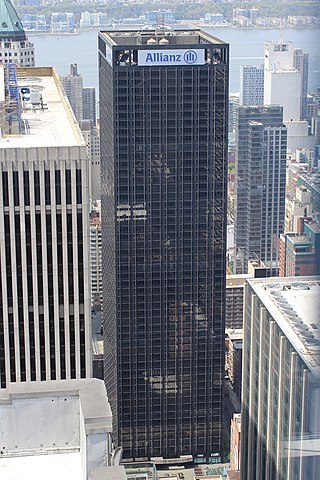
Day trading is a form of speculation in securities in which a trader buys and sells a financial instrument within the same trading day, so that all positions are closed before the market closes for the trading day to avoid unmanageable risks and negative price gaps between one day's close and the next day's price at the open. Traders who trade in this capacity are generally classified as speculators. Day trading contrasts with the long-term trades underlying buy-and-hold and value investing strategies. Day trading may require fast trade execution, sometimes as fast as milli-seconds in scalping, therefore direct-access day trading software is often needed.

Program trading is a type of trading in securities, usually consisting of baskets of fifteen stocks or more that are executed by a computer program simultaneously based on predetermined conditions. Program trading is often used by hedge funds and other institutional investors pursuing index arbitrage or other arbitrage strategies. There are essentially two reasons to use program trading, either because of the desire to trade many stocks simultaneously, or alternatively to arbitrage temporary price discrepancies between related financial instruments, such as between an index and its constituent parts.
Algorithmic trading is a method of executing orders using automated pre-programmed trading instructions accounting for variables such as time, price, and volume. This type of trading attempts to leverage the speed and computational resources of computers relative to human traders. In the twenty-first century, algorithmic trading has been gaining traction with both retail and institutional traders. A study in 2019 showed that around 92% of trading in the Forex market was performed by trading algorithms rather than humans.

Electronic trading, sometimes called e-trading, is the buying and selling of stocks, bonds, foreign currencies, financial derivatives, cryptocurrencies, and other financial instruments online. This is typically done using electronic trading platforms where traders can place orders and have them executed at a trading venue such as a stock market either directly or via a broker.
In finance, a dark pool is a private forum for trading securities, derivatives, and other financial instruments. Liquidity on these markets is called dark pool liquidity. The bulk of dark pool trades represent large trades by financial institutions that are offered away from public exchanges like the New York Stock Exchange and the NASDAQ, so that such trades remain confidential and outside the purview of the general investing public. The fragmentation of electronic trading platforms has allowed dark pools to be created, and they are normally accessed through crossing networks or directly among market participants via private contractual arrangements. Generally, dark pools are not available to the public, but in some cases, they may be accessed indirectly by retail investors and traders via retail brokers.
A multilateral trading facility (MTF) is a European Union regulatory term for a self-regulated financial trading venue. These are alternatives to the traditional stock exchanges where a market is made in securities, typically using electronic systems. The concept was introduced within the Markets in Financial Instruments Directive (MiFID), a European Directive designed to harmonise retail investors protection and allow investment firms to provide services throughout the EU.

BATS Global Markets is a global stock exchange operator founded in Lenexa, Kansas, with additional offices in London, New York, Chicago, and Singapore. BATS was founded in June 2005, became an operator of a licensed U.S. stock exchange in 2008 and opened its pan-European stock market in October 2008. As of February 2016, it operated four U.S. stock exchanges, two U.S. equity options exchanges, the pan-European stock market, and a global market for the trading of foreign exchange products. BATS was acquired by Cboe Global Markets in 2017.
High-frequency trading (HFT) is a type of algorithmic trading in finance characterized by high speeds, high turnover rates, and high order-to-trade ratios that leverages high-frequency financial data and electronic trading tools. While there is no single definition of HFT, among its key attributes are highly sophisticated algorithms, co-location, and very short-term investment horizons in trading securities. HFT uses proprietary trading strategies carried out by computers to move in and out of positions in seconds or fractions of a second.
Flash trading, otherwise known as a flash order, is a marketable order sent to a market center that is not quoting the industry's best price or that cannot fill that order in its entirety. The order is then flashed to recipients of the venue's proprietary data feed to see if any of those firms wants to take the other side of the order.

The Knight Capital Group was an American global financial services firm engaging in market making, electronic execution, and institutional sales and trading. With its high-frequency trading algorithms Knight was the largest trader in U.S. equities, with a market share of 17.3% on NYSE and 16.9% on NASDAQ. The company agreed to be acquired by Getco LLC in December 2012 after an August 2012 trading error lost $460 million. The merger was completed in July 2013, forming KCG Holdings.

The May 6, 2010, flash crash, also known as the crash of 2:45 or simply the flash crash, was a United States trillion-dollar flash crash which started at 2:32 p.m. EDT and lasted for approximately 36 minutes.

The Global Electronic Trading Company (GETCO), or Getco LLC, is an American proprietary algorithmic trading and electronic market making firm based in Chicago, Illinois. In December 2012, the firm agreed to acquire Knight Capital Group; this merger was completed in July 2013, forming the new company KCG Holdings.

Virtu Financial is an American company that provides financial services, trading products and market making services. Virtu provides product suite including offerings in execution, liquidity sourcing, analytics, broker-neutral, multi-dealer platforms in workflow technology and two-sided quotations and trades in equities, commodities, currencies, options, fixed income, and other securities on over 230 exchanges, markets, and dark pools. Virtu uses proprietary technology to trade large volumes of securities. The company went public on the Nasdaq in 2015.

KCG Holdings, Inc. was an American global financial services firm engaging in market making, high-frequency trading, electronic execution, and institutional sales and trading. The company was formed on July 1, 2013, upon the completion of the merger between Knight Capital Group, Inc. and GETCO Holding Company, LLC. Global growth equity firm General Atlantic, who had a 25% stake in GETCO, made an additional equity investment at the time of the merger. Rene Kern, managing director at General Atlantic joined the board of directors

Investors Exchange (IEX) is a stock exchange in the United States. It was founded in 2012 in order to mitigate the effects of high-frequency trading. IEX was launched as a national securities exchange in September 2016. On October 24, 2017, it received regulatory approval from the U.S. Securities and Exchange Commission (SEC) to list companies. IEX listed its first public company, Interactive Brokers, on October 5, 2018. The exchange said that companies would be able to list for free for the first five years, before a flat annual rate of $50,000. On September 23, 2019, it announced it was leaving its listing business.
Bradley Toshio Katsuyama is a Canadian financial services executive. He is the CEO and co-founder of the IEX, the Investors Exchange. He left RBC in 2012 to co-found IEX under the premise that it would be a fairer stock trading venue than other exchanges.
Spoofing is a disruptive algorithmic trading activity employed by traders to outpace other market participants and to manipulate markets. Spoofers feign interest in trading futures, stocks, and other products in financial markets creating an illusion of the demand and supply of the traded asset. In an order driven market, spoofers post a relatively large number of limit orders on one side of the limit order book to make other market participants believe that there is pressure to sell or to buy the asset.
Dave Cummings is an American entrepreneur and CEO of the high-frequency trading firm Tradebot, founded in 1999. He also is the founder of the BATS Global Markets stock exchange. He graduated from Purdue University and previously worked for Cerner before founding his own companies.

DRW Holdings, LLC, typically referred to as DRW, is a proprietary trading firm based in Chicago. The firm was founded in 1992 by Don Wilson, an options trader at the Chicago Mercantile Exchange, and was named after his initials: DRW. The firm trades various financial instruments, including fixed income, options and derivatives, energy and agriculture, and cryptocurrency. DRW has offices in Amsterdam, Austin, Greenwich, Tel Aviv, Chicago, New York City, Houston, London, Montreal, and Singapore. DRW is one of the largest trading firms in the world.
Global Trading Systems, which uses the trade name GTS, is an American proprietary trading and market making firm headquartered in New York. The firm accounts for 3 to 5 percent of the daily turnover of US equities and has handled over 250 IPO listings since 2013.










